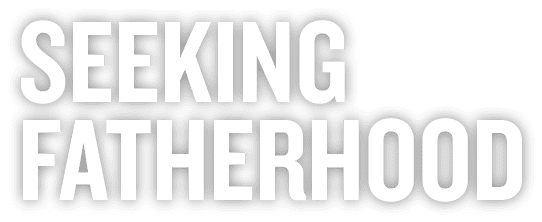
I’m getting a lot of T Berry Brazelton’s Touchpoints second-hand from Jay, who’s loving these books. It’s fair to say we’ve both been shocked by the depth and intensity of our own stuff that’s coming up as we learn to parent these kids.
The “Ghosts in the Nursery” are the remnants and afterimages of our own childhoods as we return to childhood as the parent. Wherever we might have had difficulty or been stuck, these wounds color our experience of our kids.
There’s another ghost in adoption, which is the ghost of the kids’ real mom.
I remember experiencing this vividly when my godson reached the “I hate you” phase years ago. It was like being kicked in the stomach. Nothing in all my years with him before or after was as difficult as that, and I was just the uncle, with a weekly night. I realized there must be some gap in my own development to explain what made this phase so much harder than anything else. Possibly (warning: psychological speculation ahead) my mom really needed me to be her ally and friend, and just couldn’t handle my own “I hate you” phase, so I didn’t fully do this stage. It would explain a lot, though we can’t really know.
(This is just one of the many, many things I wish Mom were here to talk about—and don’t even get me started on the heartbreak of not having her get to be a grandmother, meet the kids, or see me as a father… maybe I’ll write about that one day, but not today).
So anyway, back to our kids. These simple things happen, and there’s this incredible emotional upwelling in me, a crazed anger or frustration or desperation, that feels so out of scale with what these little people are doing. It’s nuts!
Some of it is stuff from my childhood, I’m sure. But not all.
There’s another ghost in adoption, which is the ghost of the kids’ real mom. A therapist who works with adoption explained that this is actually a fairly common sensation, feeling inhabited or even possessed by a kids’ previous caretaker. It makes sense: they’ve had years of responding to her specific personality, their actions and emotions formed around it. She probably (hopefully) had some nice qualities, but also was severely immature, neglectful, and abusive, and they have all these “hooks” that respond to me, to us as if we’re being that way, and in a bizarre way their actions try to set us in the role of the abuser. It’s spooky, this utterly foreign presence in me, a violent angry rage that just doesn’t feel like it’s from me.
So in this sense we’re having to literally break the cycle of abuse and violence in our own bodies and minds, even though neither of us experienced violence in our own childhoods.
I guess it’s a weird sort of gift to understand where the kids are coming from and what their mom had to struggle with. But it’s nauseating too, feeling the horrible desire to punish, or shame, or get the kids out of the way. It’s a firsthand reminder of why they say time outs are as much or more for the parents than the kids—we need to take that breath, remember who we are, and how we deal with emotional difficulty. We breathe, we think, we try to respond with sense, with love, with firm but gentle direction for these lovely little beings.
I knew parenting would be intense, full of surprises and unknowns. But I had no idea how intimately and deeply I’d be connected with the dysfunction of the family of the kids. That, even without meeting her (yet), the mom’s mental illness would be a presence in my own life.
Understanding this and talking about it with people has made it a lot easier, and in general I feel I’m getting my feet back under me. I’m not going to be crushed by this, as I feared I might in the first intense weeks. In fact much of our day-to-day is getting peaceful, routine, joyful. Things are going well, we’re bonding with the kids, and getting more smiles, connection, warmth.
But facing the ghosts and shadows has been quite an experience.

